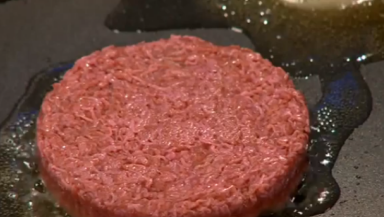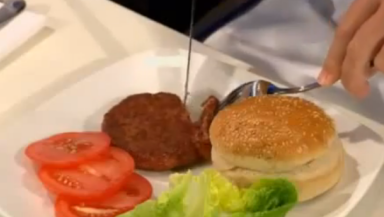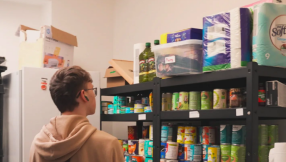
The world's first lab-grown burger has been cooked and eaten at a press conference in London today.
The artificial meat patty, which was served with a sesame seed bun, tomatoes and lettuce, was created from cells taken from a cow by scientist in Netherlands. Strips of muscle were created with tens of billions of lab-grown cells -20,000 strips of muscle sinew, costing scientists a whopping $330,000 to make.
The burger was cooked by chef Richard McGowan from Cornwall and served to food critics Hanni Ruetzler and Josh Schonwald. It was cooked with sunflower oil and butter.
Ruetzler said the patty tasted like meat. "This is meat to me. It's not falling apart."

She continued: "I was expecting the texture to be more soft... there is quite some intense taste; it's close to meat, but it's not that juicy. The consistency is perfect, but I miss salt and pepper."
Schonwald said the burger lacked flavor and fat. "The mouthfeel is like meat. I miss the fat, there's a leanness to it, but the general bite feels like a hamburger. What was consistently different was flavour."
The artificial meat contains no fat as it was not grown with fat cells.
Professor Mark Post, of Maastricht University, who spearheaded the research, said it will take a while for lab-grown burgers to reach the market, perhaps 10 to 20 years. "This is just to show we can do it," he said of the project that started in 2008. He also said that he plans on producing lab-grown fat as well, which would provide a more juicier and flavorful burger.
The project was backed by Google co-founder Sergey Brin, who said he made the donation for "animal welfare reasons."
The innovation means that billions of dollars could be saved yearly from meat processing and greenhouse gas emissions can be lowered by millions of metric tons. As the world population continues to grow, the demanding meat supply is a concern, and farming livestock will not be enough to satisfy the demand.













